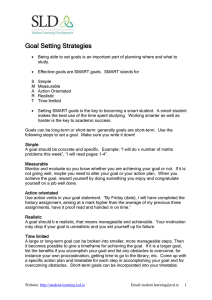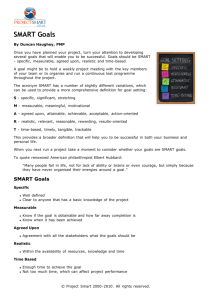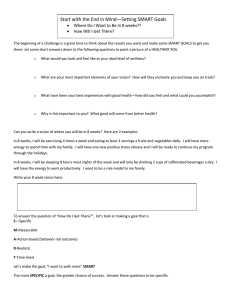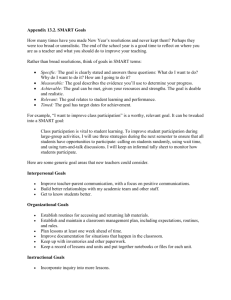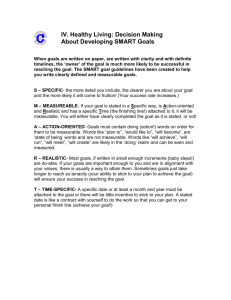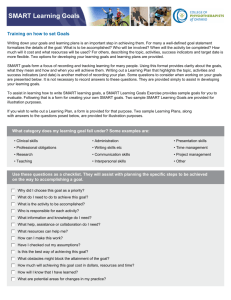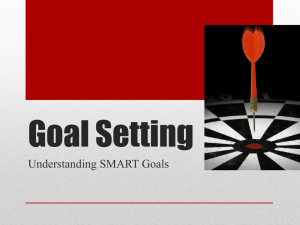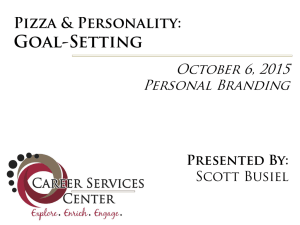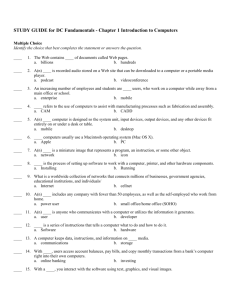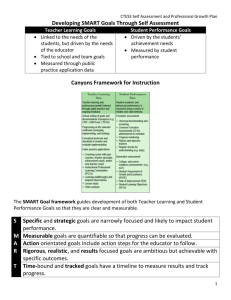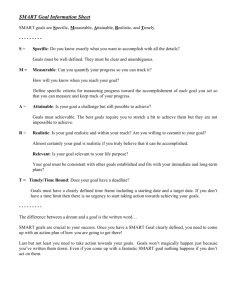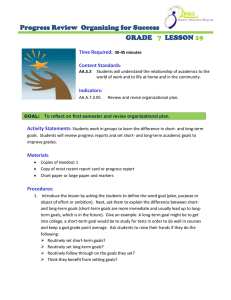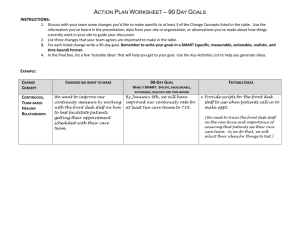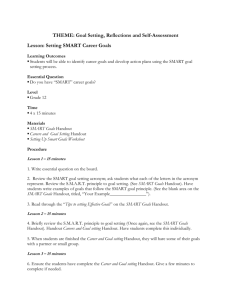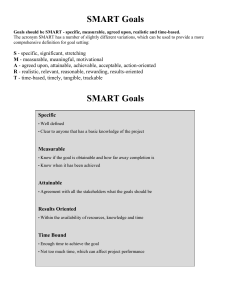SMART Goals
advertisement
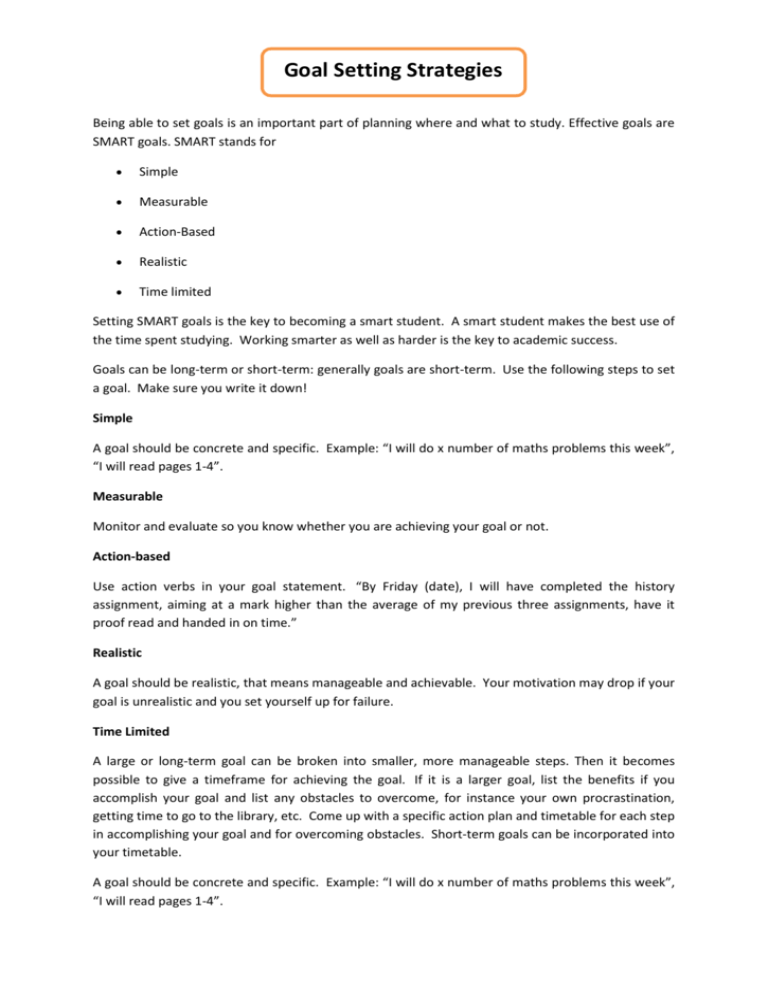
Goal Setting Strategies Being able to set goals is an important part of planning where and what to study. Effective goals are SMART goals. SMART stands for Simple Measurable Action-Based Realistic Time limited Setting SMART goals is the key to becoming a smart student. A smart student makes the best use of the time spent studying. Working smarter as well as harder is the key to academic success. Goals can be long-term or short-term: generally goals are short-term. Use the following steps to set a goal. Make sure you write it down! Simple A goal should be concrete and specific. Example: “I will do x number of maths problems this week”, “I will read pages 1-4”. Measurable Monitor and evaluate so you know whether you are achieving your goal or not. Action-based Use action verbs in your goal statement. “By Friday (date), I will have completed the history assignment, aiming at a mark higher than the average of my previous three assignments, have it proof read and handed in on time.” Realistic A goal should be realistic, that means manageable and achievable. Your motivation may drop if your goal is unrealistic and you set yourself up for failure. Time Limited A large or long-term goal can be broken into smaller, more manageable steps. Then it becomes possible to give a timeframe for achieving the goal. If it is a larger goal, list the benefits if you accomplish your goal and list any obstacles to overcome, for instance your own procrastination, getting time to go to the library, etc. Come up with a specific action plan and timetable for each step in accomplishing your goal and for overcoming obstacles. Short-term goals can be incorporated into your timetable. A goal should be concrete and specific. Example: “I will do x number of maths problems this week”, “I will read pages 1-4”.
